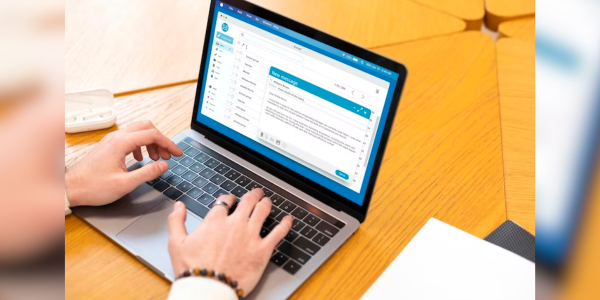'Yours sincerely' is disappearing! Discover how changing language trends will eliminate old phrases in the next decade
By
VanessaC
- Replies 26
For many of us, the phrase ‘Yours sincerely’ evokes memories of writing thank-you cards and letters to family or our days as students being taught letter-writing rules.
However, research says that such phrases could soon be a thing of the past as language trends change in response to the rise of instant messaging.
A study into workplace emails suggests that starting with 'Dear' and ending with 'Yours sincerely' will soon become obsolete.
In its place, phrases such as 'Kind regards' and 'Many thanks' are on the rise, with younger employees choosing ‘Cheers’, ‘Ta’, ‘Speak soon’ and even 'TY' (an abbreviation of thank you).
Barclays LifeSkills surveyed 2000 people, and 37 per cent described 'Yours sincerely' as 'old fashioned', while 10 per cent said it was 'boring'. Six per cent of 18 to 24-year-olds found the phrase 'intimidating'.
On the other hand, 'Best wishes' is considered 'friendly' by 41 per cent and 'warm' by 24 per cent.
Moreover, starting an email with 'Dear' is described as 'old fashioned' by 35 per cent of the participants, while 9 per cent said it’s 'boring'.
This shift in language norms is apparent as 71 per cent say 'the younger generation [is] changing the formality of language in the workplace', and 69 per cent believe that the phrases we use have evolved over the past five years.
Four out of ten participants are convinced 'Yours truly' will turn 'extinct', and 36 per cent believe 'Yours sincerely' will follow suit within the next ten years.
The traditional phrases like 'To whom it may concern', 'With compliments' and even the use of 'Dear' might soon find themselves in the language museum.
'Kind regards' also seems to be the best and safest option to bridge the gap between different generations and levels of seniority in the workplace, as 51 per cent considered it formal, 34 per cent said it sounded 'friendly', and 20 per cent said it was 'warm'.
Exclamation marks, on the other hand, should be used with caution as more than half—54 per cent—said that overusing them is 'unprofessional', and 41 per cent said that those who use them in email comes off as 'too enthusiastic'.
So, what’s driving this change in the way we communicate? At 34 per cent, reliance on technology, specifically on instant messaging platforms at work, is seen as the biggest factor.
Moreover, according to Kirstie Mackey, Head of Barclays LifeSkills, 'Our research shows the next generation [is] clearly going to make their mark on the workforce when it comes to how we communicate.'
'The shift to more personable language is a positive one. However, it's important to demonstrate an understanding of social etiquette in the workplace, which does differ from school or university.'
'Striking the right balance whilst still displaying your personality through your communications is key,' Ms Mackey concluded.
Furthermore, Dr Laura Bailey, Senior Lecturer in English Language and Linguistics at the University of Kent, added: 'Changing norms in the workplace are reflected in the language younger employees use, and the way communication has changed in general.'
'Email threads and instant messaging platforms have become blended into “conversations” where formal openings and sign-offs might feel out of place.'
'For the older generation, letter-writing etiquette might be drilled in enough that it is instinctive in any written communication, whereas for Gen Z, social media has driven linguistic change and sped up the spread of language trends.'
 Members, how do you feel about these changes? Have you also noticed the changes? Share your thoughts with us in the comments below!
Members, how do you feel about these changes? Have you also noticed the changes? Share your thoughts with us in the comments below!
However, research says that such phrases could soon be a thing of the past as language trends change in response to the rise of instant messaging.
A study into workplace emails suggests that starting with 'Dear' and ending with 'Yours sincerely' will soon become obsolete.
In its place, phrases such as 'Kind regards' and 'Many thanks' are on the rise, with younger employees choosing ‘Cheers’, ‘Ta’, ‘Speak soon’ and even 'TY' (an abbreviation of thank you).
Barclays LifeSkills surveyed 2000 people, and 37 per cent described 'Yours sincerely' as 'old fashioned', while 10 per cent said it was 'boring'. Six per cent of 18 to 24-year-olds found the phrase 'intimidating'.
On the other hand, 'Best wishes' is considered 'friendly' by 41 per cent and 'warm' by 24 per cent.
Moreover, starting an email with 'Dear' is described as 'old fashioned' by 35 per cent of the participants, while 9 per cent said it’s 'boring'.
This shift in language norms is apparent as 71 per cent say 'the younger generation [is] changing the formality of language in the workplace', and 69 per cent believe that the phrases we use have evolved over the past five years.
Four out of ten participants are convinced 'Yours truly' will turn 'extinct', and 36 per cent believe 'Yours sincerely' will follow suit within the next ten years.
The traditional phrases like 'To whom it may concern', 'With compliments' and even the use of 'Dear' might soon find themselves in the language museum.
'Kind regards' also seems to be the best and safest option to bridge the gap between different generations and levels of seniority in the workplace, as 51 per cent considered it formal, 34 per cent said it sounded 'friendly', and 20 per cent said it was 'warm'.
Exclamation marks, on the other hand, should be used with caution as more than half—54 per cent—said that overusing them is 'unprofessional', and 41 per cent said that those who use them in email comes off as 'too enthusiastic'.
So, what’s driving this change in the way we communicate? At 34 per cent, reliance on technology, specifically on instant messaging platforms at work, is seen as the biggest factor.
Moreover, according to Kirstie Mackey, Head of Barclays LifeSkills, 'Our research shows the next generation [is] clearly going to make their mark on the workforce when it comes to how we communicate.'
'The shift to more personable language is a positive one. However, it's important to demonstrate an understanding of social etiquette in the workplace, which does differ from school or university.'
'Striking the right balance whilst still displaying your personality through your communications is key,' Ms Mackey concluded.
Furthermore, Dr Laura Bailey, Senior Lecturer in English Language and Linguistics at the University of Kent, added: 'Changing norms in the workplace are reflected in the language younger employees use, and the way communication has changed in general.'
'Email threads and instant messaging platforms have become blended into “conversations” where formal openings and sign-offs might feel out of place.'
'For the older generation, letter-writing etiquette might be drilled in enough that it is instinctive in any written communication, whereas for Gen Z, social media has driven linguistic change and sped up the spread of language trends.'
Key Takeaways
- Phrases such as 'Yours sincerely' and starting emails with 'Dear' are on the brink of becoming obsolete due to the rise of instant messaging and less formal language in the workplace.
- A study by Barclays LifeSkills found that 37 per cent of the 2,000 people surveyed considered 'Yours sincerely' as 'old fashioned', and many preferred to finish emails with 'Kind regards' or 'Many thanks'.
- The study found that 71 per cent of respondents believe that younger generations are changing the formality of language in the workplace, with 69 per cent noticing phrases have evolved over the past five years.
- Despite this shift towards more informal language, the study suggests that email sign-offs like 'Kind regards' are still considered to strike the right balance between formal and friendly, making them safe options for workplace communications.









